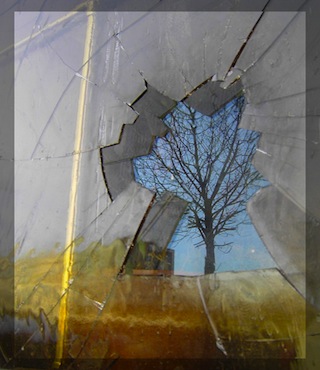
On September 5, my husband and I will celebrate the third anniversary of our wedding. It’s a happy occasion, of course. We have liked being married and intend to keep liking it.
But for us, the week of our anniversary is also sad. This year, August 29 marks the third memorial of my father’s unexpected and untimely passing. He’d struggled with an aggressive leukemia and gone into remission, but a relapse plus some medical incompetency resulted in a sudden brain hemorrhage, and he died before I could make it home to say goodbye, on the morning of the day I was going home to get ready for the wedding. We canceled the big wedding and got married in the backyard in a simple ceremony a few days later.
Over the next year of struggling and anger and sadness, I came to realize that many people lose a family member when it’s too soon – when it doesn’t seem as if it was their time to go. A friend told me the story of her first Christmas break home from college, when her father went out to finish the shopping on Christmas Eve and was found pulled over on the side of the highway, crumpled over his steering wheel, the victim of a heart attack. Holidays are inextricably tied up with these memories, and as I discovered, it’s more common than we think.
Family holidays, anniversaries, graduations, life events: for many, these are bittersweet occasions, but for those who have lost a loved one, the feelings are intensified. The sorrow has a silver lining. We learn that joy and sadness often co-exist, that a passing allows us to remember the best in a person, and to resolve to follow their lead.
I was thinking of all of this while I watched Still Walking, Hirokazu Kore-eda’s newest film, which opens tonight at the Brooklyn Academy of Music (with the director present) and next weekend in limited release. It’s a quiet, buoyant tale of a family gathering to celebrate the memorial of a loved one’s passing, and without giving much away, I can say that in its cheerfulness, its celebration, and its dark moments, the film has much to say about treasuring loved ones before it’s too late, about regret and what it does to people, and about the nature of memory. At one point, a photograph of the missing loved one is actually carried into the family photograph that’s being taken, reminding us that, as one character says, “People might die, but they are never really gone.”
Kore-eda’s direction and the actors’ performances are marvelously natural, and the tale unfolds slowly as they invite us into their world, showing us the food they’re making, telling stories, revealing secrets, laughing, crying, and behaving much like any normal family. It’s a nearly flawless portrait, and somehow, imbued with hope. (It also bears a striking resemblance to the classic Tokyo Story, but I’ll leave the rest for a forthcoming review.)
In this way, Still Walking is similar to two excellent recent movies. It shares significant themes and their variations with Olivier Assayas’s Summer Hours, which reminds us that families can love one another and still have differences, that heritage is worth preserving, that we must treasure our history so that it does not disappear when generations pass away, and that we are more influenced by our ancestry than we may realize – all from a French perspective.
I also found myself thinking of Jonathan Demme’s festive but brutally honest Rachel Getting Married, in which the empty chair at the table is what tore a family apart, and what will bring them back together, all at a celebration filled with love, laughter, music, dancing, and great food.
I don’t cry at movies, but these ones have left me with a lump in my throat, as I recognize myself onscreen. My father’s death did not leave me despairing, thanks to the support and love of my new husband, but it took many months to recover a feeling of confidence in life and the ability to talk about the experience without becoming angry. These films capture the reality of the human experience across three continents – family, love, celebration, and death – and stand as a testament to the continuation of life through generations and the importance of valuing family while they are still with us.
